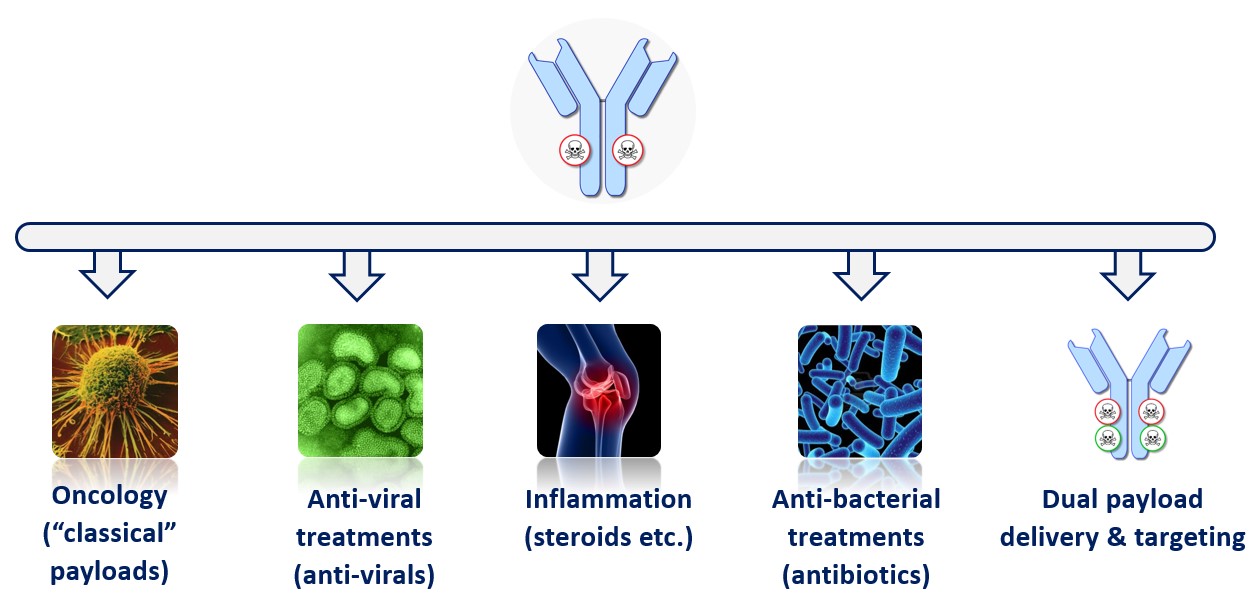High-performance glue for targeted cancer therapy
How can a special glue improve tumour therapy? ETH alumnus Philipp Spycher, co-founder of Araris Biotech explains.
Philipp, why do you need a glue for cancer therapy?
We developed a novel kind of glue (linker) to attach anti-cancer drugs to tumour-specific antibodies, thereby creating Antibody-Drug Conjugates (ADCs). ADCs are powerful pharmaceuticals, delivering highly toxic or potent drugs specifically to the desired tissue (e.g. tumour), while healthy parts of the human body are spared. The glue or Araris linker thereby glues or connects the drug to the antibody. Our technology is so unique that it has received considerable market traction from major pharmaceutical companies already. We founded Araris Biotech AG in January 2019 as a spinoff company of ETH and PSI.
How did you discover the new glue?
The technological corner stone was laid over ten years ago at ETH in the group of Prof. Schibli. Later, when I was a post-doc at PSI, we were working on two projects to further advance the technology, and by combining elements from both projects, we made this surprising, unexpected finding. So it was really serendipity.
What are the benefits of the Araris product?
Even though the idea of making ADCs has been around for decades, current ADCs face major challenges such as pre-mature loss of the drug leading to unacceptable toxicities and reduced efficacy. Our technology has the potential to overcome these challenges. Araris ADCs have favourable physicochemical properties and showed very efficient anti-tumour responses when compared to conventional ADCs made of the same antibody and drug at identical doses. Importantly, we can attach any drug to the antibody without the need to engineer the antibody beforehand, in contrast to many of our competitors.
Who are your future customers?
All pharmaceutical companies working in the field of targeted tumour therapy, as we see the greatest demand in oncology. However, there are also other ADC applications emerging, such as for inflammatory and infectious diseases.

What are your challenges?
Like all companies that have a broadly applicable technology we need to focus on a few indications where we want to develop our own compounds, because we simply cannot do everything that is possible. So the challenge for us is to select the right targets and drugs.
What are your goals for the near future?
We successfully closed a CHF 2.5M seed round with Swiss VCs. Currently, we are a team of five people and plan to employ one more by the end of 2019. Furthermore, we will continue to build up the laboratory at the ETH Innovation & Entrepreneurship Lab at Hönggerberg and collect more data. Our dream and vision is that we'll be able to cure certain patients with cancer and that our technology will become the state-of-the art in the ADC field.

Contact / Links:
Do you want to get more "News for Industry" stories?
external pageSubscribe to our newslettercall_made
external pageFollow us on LinkedIncall_made
Are you looking for research partners at ETH Zurich?
Contact ETH Industry Relations

